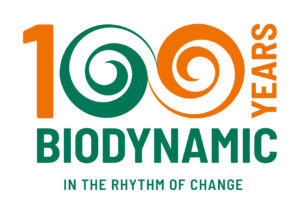In 2024, we celebrate the centenary of the biodynamic movement. It began in 1924 when a group of farmers noticed increased disease and decreased resilience in both animals and plants. Alongside this there were concerns about the negative impacts of agro-industrial practices and chemical fertilisers that were just beginning. They approached Rudolf Steiner, convinced there had to be a better way to farm and work with nature.
That was the beginning of biodynamic farming, a series of eight lectures given by Rudolf
Steiner in 1924, published later under the title ‘Agriculture Course’. Farmers and gardeners developed these first indications by putting them into practice and observing the results, creating an early form of participatory research with the ‘Agricultural Experimental Ring’. All this experience led to the creation of the Demeter brand and the first Demeter standards in 1928. From that moment on, the movement kept growing and in the last decade alone biodynamic hectares have increased by 57%, reaching 255 000 hectares in 2022 cared for by more than 7 000 farmers worldwide.
Biodynamic farming often plays a showcase role when it comes to demonstrating the benefits of organic farming. Several Demeter farms were, for instance, selected as organic best practice farms by the German Ministry for Food and Agriculture and as finalists for best price awards such as the European Organic Award introduced by the European Commission. In 2022 Tablehurst Farm in the UK was even named best food producer by the BBC food and farming awards.

